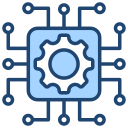Why Digital Tools Define Competitive Advantage Today
Modern strategy thrives when dashboards replace guesswork. Analytics platforms consolidate signals from marketing, sales, finance, and operations, showing patterns humans miss. When leaders debate with shared facts, decisions become faster, fairer, and demonstrably better.
Why Digital Tools Define Competitive Advantage Today
Collaboration boards, integrated CRMs, and automation cut handoffs that once devoured weeks. Speed compounds: quicker experiments teach faster, revealing what to scale or stop. Share how you accelerated a process with a single, well-chosen tool.
Why Digital Tools Define Competitive Advantage Today
A small bakery adopted an online ordering tool and social scheduler. Within two months, daily waste dropped by half because forecasting finally matched demand. The owners spent saved hours inventing a best-selling seasonal pastry.






